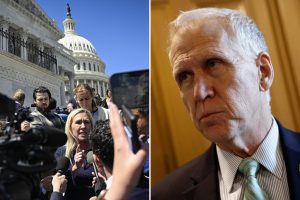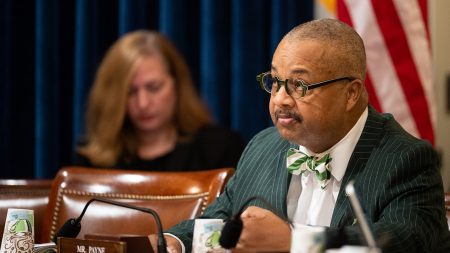The 19th century Comstock Act, which prohibits the mailing of drugs used for abortions among other considered lewd or indecent materials, has resurfaced as a topic of discussion during arguments in a major abortion pill case in the Supreme Court. Conservative justices Clarence Thomas and Samuel Alito have referenced this long-dormant law, indicating its potential relevance in the ongoing legal battle over abortion. Calls from within the anti-abortion movement are now urging for the enforcement of the Comstock Act to ban the mailing of abortion medication, without requiring action from Congress or approval from the Supreme Court.
Despite uncertainty and disagreement within the anti-abortion movement about the potential impact of enforcing the Comstock Act, some believe that it could effectively ban medication abortion and even all abortions. Abortion rights supporters argue that the law is being over-interpreted, leading to alarm bells being rung as some justices on the Supreme Court seem open to a maximalist interpretation of the law’s reach. Justices Alito and Thomas have shown interest in the law’s relevance to the current case, highlighting how the Comstock Act is playing a more significant role in efforts to limit abortion access.
The Comstock Act, originally enacted in 1873 to prohibit the mailing of lewd materials, including abortion-related items, has played a cameo role in the current Supreme Court case regarding the FDA’s regulations on mifepristone, which is used in medication abortion. Challenges to the FDA’s rule changes have invoked the Comstock Act to argue against the agency’s actions, with some justices expressing interest in its significance. However, the Biden administration contends that the law is not relevant to the current dispute over the drug’s regulations, as the FDA’s focus should be on safety and efficacy concerns.
The potential impact of the Comstock Act in restricting access to medication abortion and other abortion-related tools and instruments is a subject of debate among legal experts and anti-abortion advocates. Some believe that a reversal of the Justice Department’s current interpretation of the law under a Republican administration could lead to a significant limitation of abortion services nationwide. While the Heritage Foundation has called for the enforcement of the law, some advocates are cautious about potential political backlash and the implications for access to abortion pills if the law is aggressively enforced.
With the Supreme Court unlikely to provide immediate clarity on the reach of the Comstock Act, the potential enforcement of the law under a future administration could have far-reaching implications for abortion access in the United States. The political ramifications of the Court’s decision in the current FDA case, as well as the possible impacts of enforcing the Comstock Act, are key considerations for anti-abortion advocates and policymakers, including former President Trump. The complexity of the issue and varying opinions within the anti-abortion movement highlight the challenges and uncertainties surrounding the enforcement of this long-dormant law.















